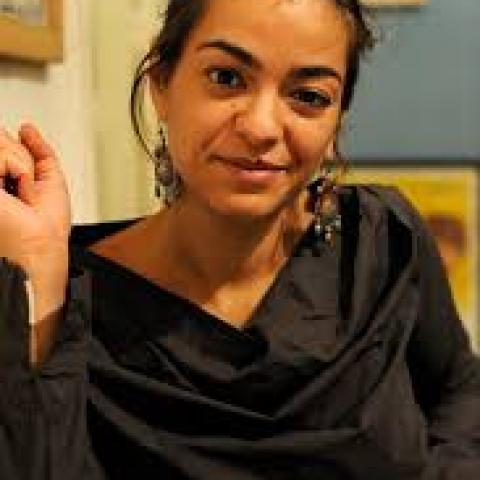Egyptian Justice Under Collapse
Egyptian courts have allowed alleged perpetrators of killings and torture from security agencies to walk free, sometimes without ever appearing in court, while relatives of those killed by police brutality suffer in silence. This trend didn't start with dismissing the case against former President Hosni Mubarak, and acquitting his Minister of Interior and top police aides of charges of killing protesters during the 2011 revolution, and apparently won't end with it.
Amal Helmy will never see justice take its course. Last summer, human rights workers from the Egyptian Initiative of Personal Rights (EIPR) sat with her and her children at their home in the Cairo neighborhood of Matareya, as she recounted how her husband Ezzat Abdel Fattah Sliman was beaten to death at the local police station. "Until my last breath, I will fight for his rights" Ms. Helmy told EIPR researchers, "I will knock on all doors". Tragically, AmalHelmy, her son Ahmed and her daughter Safinaz died on 25 November, when their house collapsed without seeing perpetrators of his brutal killing brought to account. They are survived by Ezzat's younger son, currently completing his military service.
The family's ordeal started in May, 2014, when Mr. Sliman and his son, Ahmed, were taken to the Matareya Police Station on May 3, 2014, following a dispute in their neighborhood between two families and Mr. Seliman's verbal altercation with a low-ranking police officer. Ahmed was released the following day, but his father was referred to the public prosecution on May 4 - the last time Amal saw him alive.
Amal next saw his lifeless body at the Matareya Hospital. "There were bruises on his face, his eyes were open and white, his jaw and teeth were broken, a part of his tongue was cut off, and his whole body was covered in cigarette burns", she described in shock, "there were injuries on the back on his skull and his back...a nail from his left foot was pulled off along with a piece of flesh." A forensic report seen by EIPR researchers confirmed these injuries and fractures, concluding that he suffered a concussion and broken ribs leading to a respiratory failure.
In her discussions with EIPR researchers, Ms. Helmy expressed her worry that officials at Matareya Police Station were trying to cover-up the crime. She explained: "I found out from the doctor at the morgue that the report he got from the police station claimed that he [Mr. Seliman] had a high temperature and suffered from a drop in his blood circulation.. I also found out from the prosecutor that when he went to the police station to investigate, they [ police officers] brought him a number of prisoners who claimed that he had a temperature and lost consciousness in detention."
Until her untimely death, Ms. Helmy was unrelenting in her pursuit of justice despite threats received from members of the Matareya Police Station, and she accused three police officers of direct responsibility for his murder. Investigations were launched by prosecution, but stalled since August. The prosecution heard Ms. Helmy's testimony and that of two other witnesses from the neighborhood who observed Mr. Seliman's altercation with the low-ranking police officer. But the prosecution refused to let Ms. Helmy's lawyers examine the testimonies of police officers present at the station at the time of his death.
Ms. Helmy's failed struggle is common among many relatives of victims of police abuse who consistently see their hopes for justice crushed. Between April and July, 2014, at least three people died inside the Matareya Police Station alone. Nobody has been held to account for any of these deaths to date, and the station officers had not even been accused of negligence. EIPR researchers also documented the death of 23 year-old Mohamed Ahmed Ibrahim at the Matareya Police Station on June 15. He was due for release after having served his prison sentence and referred back to the Matareya Police Station to complete release procedures. Instead of welcoming him home, his father collected his corpse. "I found the boy beaten, there were lots of bruises on his face and eye", he lamented.
Investigations into police abuse are rarely conducted, let alone result in prosecutions or convictions. Since June, 2013, there have been over 100 recorded deaths in custody, but only one low-ranking police officer was convicted in the case of Mohamed Khalil, who was shot dead inside the Imbaba Police Station last May.
At her home, now in ruins, Ms. Helmy had told EIPR researchers in August, 2014"I will not rest until we get his rights." It is now our collective responsibility to keep her struggle alive and call for this cycle of abuse to be broken in the face of the judiciary's persistence to absolve the regime and security apparatus on any responsibility.
This article has been published through The World Post in 31 December 2014




